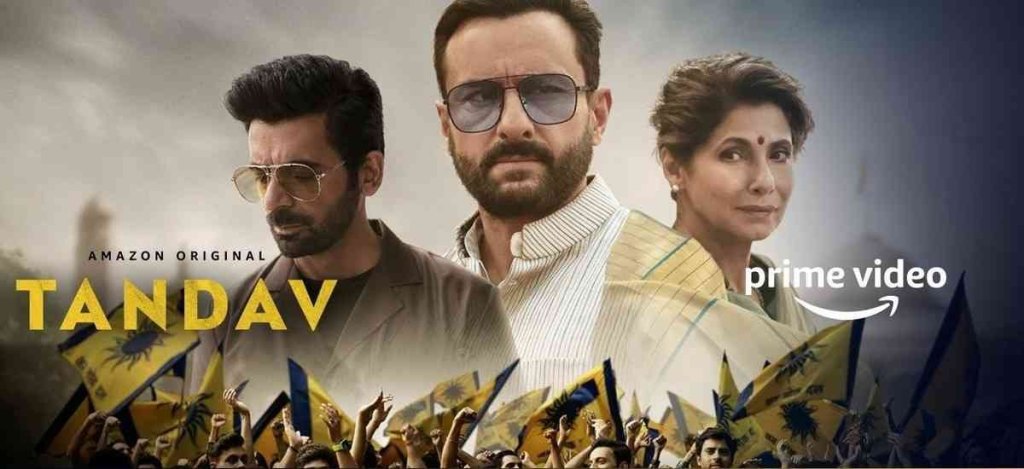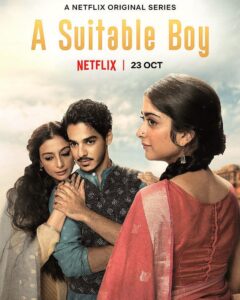‘Tandav’ becomes first casualty of new OTT rules

Officials of the Ministry of Information and Broadcasting summoned Amazon Prime Video officials in India in connection with the controversy around Tandav series
Amazon Prime India’s latest web series, Tandav, released on January 15, 2021, starring Saif Ali Khan, Dimple Kapadia and Mohammed Zeeshan Ayyub, is the latest in line to face backlash and outrage for allegedly ‘insulting Hindu gods and goddesses’ and ‘hurting religious sentiments’ in the country.
Officials of the Ministry of Information and Broadcasting summoned Amazon Prime Video officials in India in connection with the controversy around the web series soon after the calls for boycott emerged on social media. As has become the norm in India, within hours, Tandav’s cast and crew succumbed to the pressure and offered an unconditional apology following police complaints in Maharashtra and Uttar Pradesh by various BJP members – including Kapil Mishra and Ram Kadam, BJP MLAs from New Delhi and Maharashtra respectively. The makers of Tandav also agreed to cut two scenes, including the stage play scene with Zeeshan Ayyub as Shiva (a Hindu God) and another one with Tigmanshu Dhulia’s remarks as the prime minister of India, at the demand of the ministry. This makes Tandav, the first-ever series to make amendments post-release.
“The problem is not that people have been asking to boycott Amazon Prime India or the cast and crew related to the web series; the problem is that the creators have bowed down and agreed to follow what majority considers ‘acceptable’,” says Divyansh Ranjan, a 28-year-old documentary filmmaker from Delhi.
“It is worrisome and disappointing that creators have started to make changes and apologise for using their creative freedom,” he adds.
The scene in question has actor Mohammed Zeeshan Ayyub’s character playing Shiva on stage. He is dressed in semi-formal clothes, with his face painted with blue stripes and talks about ‘tweeting something controversial to gain followers on social media’. He also talks of why university students are chanting azadi (freedom) and how they are misunderstood by the government.
There were several other points of contention – the portrayal of the Prime Minister of India, being one of them. Played by Tigmangshu Dhulia, the series shows the PM sipping on wine in one scene and also references his illicit relationship with a party worker, Anuradha Kishore, played by Dimple Kapadia.
The controversy and the crumbling of the crew to the pressure has worried other stakeholders and fans of the seventh art in the country. “As an aspiring filmmaker, I look up to those creators who tell challenging stories. Even a superstar like Amitabh Bachchan, who is a known supporter of the BJP, had challenged Hindu gods in his films. At that time, I think people were more tolerant. I cannot think of a film or show representing similar things and getting away with it without any outrage these days,” says 24-years-old Shweta Gupta, a student of India’s premier film making institute, the Film and Television Institute of India in Pune.
Gupta refers to a long list of films and web series releases in India, that, in past few years have faced the wrath of political parties, especially on the matters related to religion.
The year 2020 ended with a call to #BanNetflix after the country outraged over a kissing scene in the BBC drama A Suitable Boy, which is streamed by Netflix. Similar to Tandav, Mira Nair’s A Suitable Boy was called out for allegedly hurting the religious sentiments of a community by showing its lead character Lata, a Hindu girl, kissing her Muslim boyfriend against the backdrop of a temple.
A few months before that in May 2020, Amazon had found itself in another pickle when Paatal Lok was pulled up for alleged racial slurs. Another series on Amazon Prime Mirzapur was also not spared for allegedly depicting the eponymous district and Uttar Pradesh in a bad light.
“Now, to say that outrage is slowly becoming our national sport and that we seem to have a problem with just about any show, wouldn’t be wrong. I had expected this to happen soon after I&B ministry took over OTT,” she adds.
The government had recently brought OTT platforms, besides other online news and current affairs content, under the ambit of the Ministry of Information and Broadcasting, giving it powers to regulate policies and rules for the digital space.
“It worries me because there is no meaning to creative liberty if people keep asking for amendments and creators keep doing that. This has happened many times before and there seems no way out of it except for the creators and cast to stand their ground. I am sure the same thing will happen with upcoming ones too,” adds Gupta.
Amazon is currently prepping for The Family Man Season 2, but the first season of the Manoj Bajpayee starrer show also ruffled feathers for a scene where a woman affiliated to the National Investigating Agency (NIA) is seen telling her male colleague how Kashmiris were being oppressed by the Indian state following the shutdown of phones and internet. She also speaks of how the state uses measures like the Armed Forces Special Powers Act (AFSPA).
Gupta and filmmaker Ranjan add many more instances of boycott and ban calls for films and web series that try to portray an opinion contrary to that of the party in power or criticises their moves. They say that it is gradually showing the reality of how fragile public sentiment has turned and how violence has been fuelled by the political party since last few years. “They may name it ‘hurting religious sentiments’ or ‘disturbance to peace’, but the truth is that it is for the benefit of the politicians. That people do not understand it that they are not only dictating what directors can create, but also what people are allowed to watch. More than anyone else’s, the common people’s freedom is at stake,” says Ranjan.










